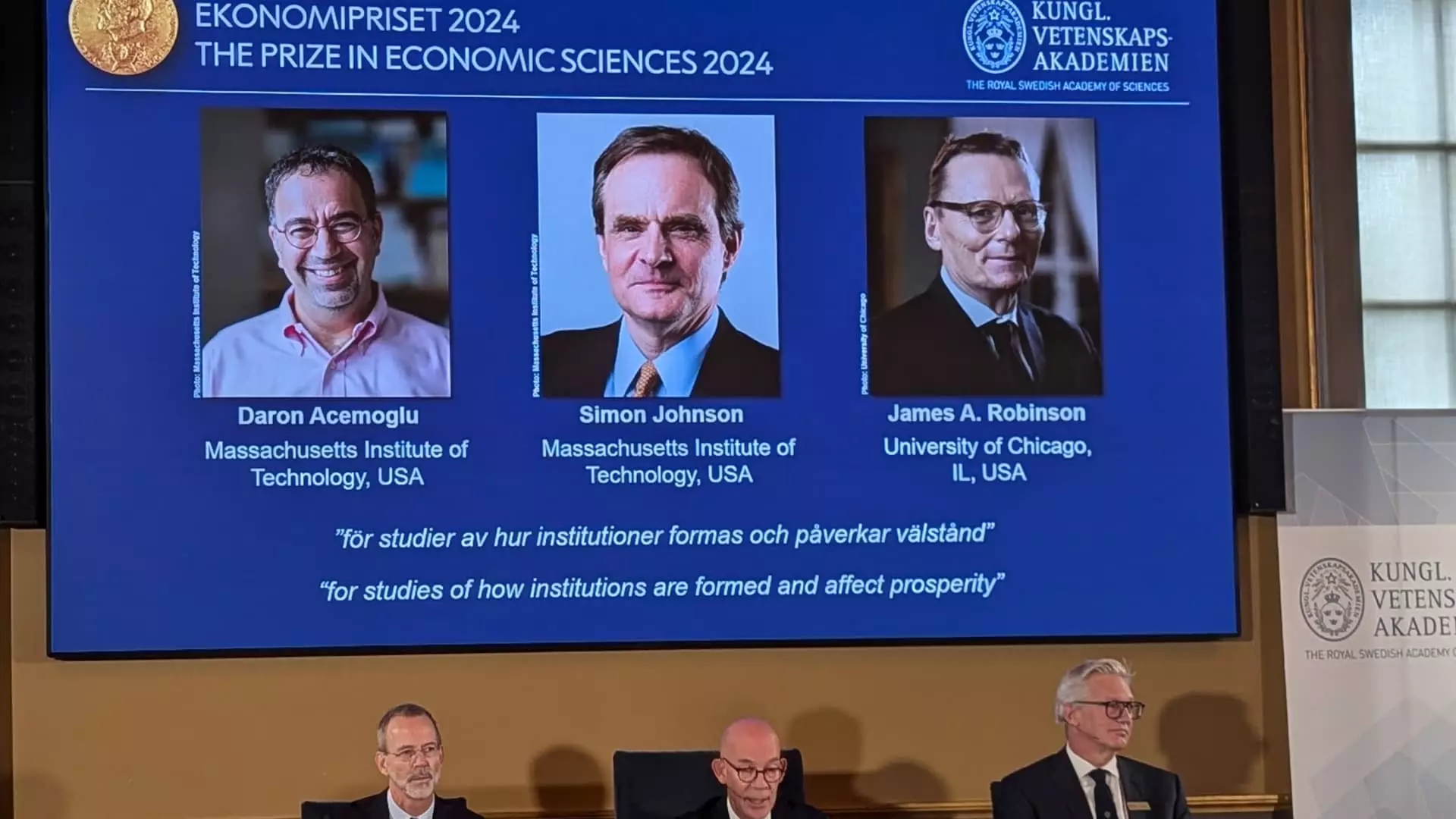On a significant day for economic scholarship, renowned economists Daron Acemoglu, Simon Johnson, and James Robinson were awarded the Nobel Prize in Economic Sciences for their groundbreaking work on wealth inequality across nations. The Nobel committee underscored their contributions to understanding how societal institutions, or the lack thereof, play a pivotal role in shaping a nation’s economic trajectory. By examining the structural failures inherent in poorly governed countries, particularly those characterized by weak rule of law and exploitative institutions, the laureates have illuminated why some nations experience stagnation while others thrive.
Acemoglu and Johnson, both professors at the Massachusetts Institute of Technology (MIT), along with Robinson, who helms the Pearson Institute at the University of Chicago, have worked to interlink economics with institutional analysis. Their influential book, *Why Nations Fail: The Origins of Power, Prosperity, and Poverty*, published in 2012, offers a detailed exploration of historical and contemporary examples of governance and wealth accumulation. The authors argue that the nature of a nation’s institutions—whether inclusive or extractive—critically determines its economic health. Inclusive institutions promote participation and equitable resource allocation, while extractive institutions often perpetuate inequality and economic stagnation.
The disparity highlighted by the Nobel committee—where the wealthiest 20% of nations possess around 30 times the wealth of the poorest 20%—is alarming. Their findings suggest that these inequalities are not mere happenstance but rather the result of historical trajectories shaped by initial institutional setups, often a legacy of colonial practices. Where colonizers established robust frameworks for economic activity and governance, lasting benefits have accrued; conversely, areas left with exploitative systems have struggled to develop and innovate.
The work of Acemoglu, Johnson, and Robinson illustrates that the roots of current global inequality can often be traced back to the political and economic systems initiated during periods of colonization, starting in the 16th century. This historical context is crucial in understanding the contemporary issues of poverty and wealth concentration. Countries that were economically prosperous at the time of colonization, despite their temporary advantage, now find themselves with profound challenges related to governance and development. The Nobel committee emphasizes that their research has been pioneering in both empirical and theoretical approaches to analyzing these disparities. Nobel director Jakob Svensson aptly noted that understanding the mechanisms sustaining these inequalities is one of the most pressing issues within the social sciences.
As nations continue to grapple with issues of inequality both locally and globally, the implications of the Nobel laureates’ research extend far beyond academia. Policymakers, international organizations, and civil societies must consider these findings when designing interventions aimed at fostering economic development. By focusing on building inclusive institutions that bolster the rule of law and protect individual rights, there lies potential for sustainable growth and poverty alleviation.
Furthermore, the distribution of the Nobel Prize fund—an award amounting to 11 million Swedish kronor, to be shared equally among the three economists—highlights a collaborative spirit in addressing complex global challenges. Their recognition draws attention not only to the mechanics of economic systems but also to the societal implications that follow. The Nobel Prize in Economic Sciences, established in 1968, continues to underscore the relevance of economic inquiry for understanding and rectifying contemporary issues.
Ultimately, the message conveyed by the achievements of Acemoglu, Johnson, and Robinson is one of hope. While the socio-economic gaps between rich and poor nations are daunting, the insights garnered from their research can be instrumental in crafting policies that empower populations and promote equitable growth. As we advance into a future increasingly marked by globalization and interconnectedness, the quest for more equitable institutional frameworks must remain paramount. The application of their findings could potentially lead to long-lasting structural changes, helping to bridge the divide that has characterized international economics for centuries. Their work serves as a reminder of the power of institutions in shaping the fortunes of nations and, by extension, the futures of millions around the globe.

Leave a Reply